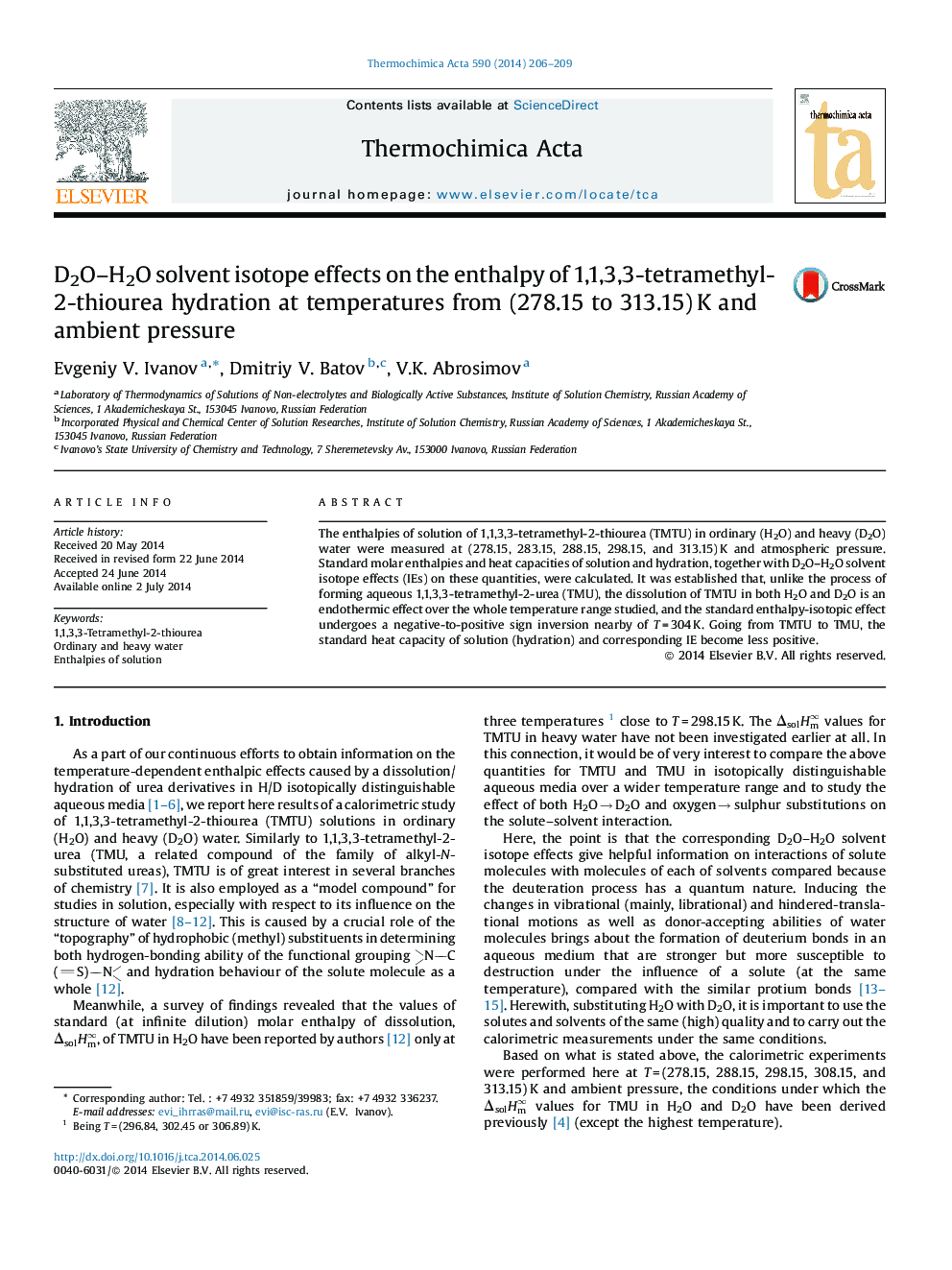| Article ID | Journal | Published Year | Pages | File Type |
|---|---|---|---|---|
| 673248 | Thermochimica Acta | 2014 | 4 Pages |
•Enthalpies of solution of 1,1,3,3-tetramethyl-2-thiourea in H2O and D2O were measured.•Dissolution process becomes increasingly endothermic as the temperature is rising.•Enthalpy-isotopic effect undergoes a negative-to-positive sign inversion at 304 K.•Positive heat capacity of dissolution increases significantly, going from H2O to D2O.•Hydration of solute, being prevailingly hydrophobic, is weakened with temperature.
The enthalpies of solution of 1,1,3,3-tetramethyl-2-thiourea (TMTU) in ordinary (H2O) and heavy (D2O) water were measured at (278.15, 283.15, 288.15, 298.15, and 313.15) K and atmospheric pressure. Standard molar enthalpies and heat capacities of solution and hydration, together with D2O–H2O solvent isotope effects (IEs) on these quantities, were calculated. It was established that, unlike the process of forming aqueous 1,1,3,3-tetramethyl-2-urea (TMU), the dissolution of TMTU in both H2O and D2O is an endothermic effect over the whole temperature range studied, and the standard enthalpy-isotopic effect undergoes a negative-to-positive sign inversion nearby of T = 304 K. Going from TMTU to TMU, the standard heat capacity of solution (hydration) and corresponding IE become less positive.
Graphical abstractFigure optionsDownload full-size imageDownload as PowerPoint slide
